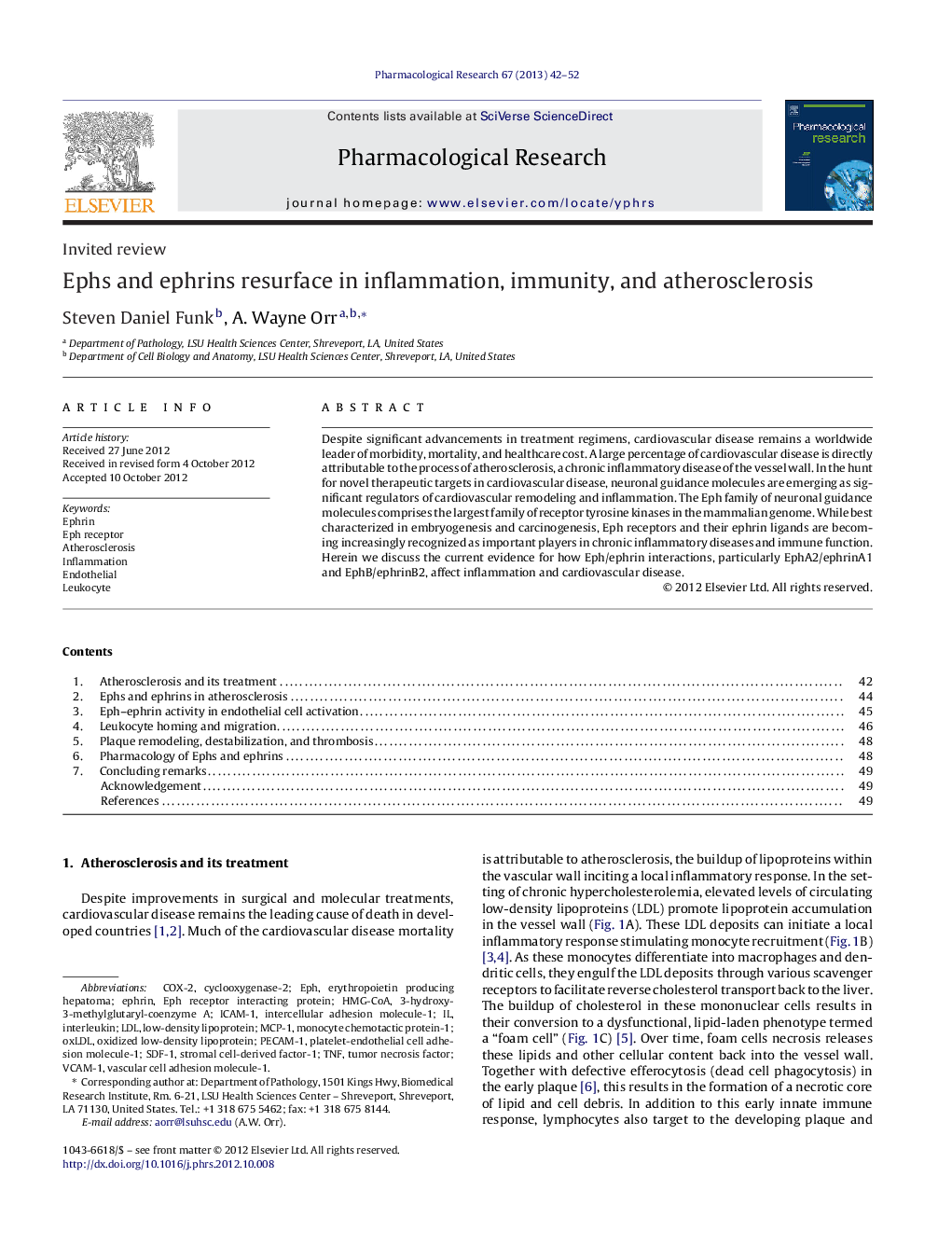| Article ID | Journal | Published Year | Pages | File Type |
|---|---|---|---|---|
| 2561419 | Pharmacological Research | 2013 | 11 Pages |
Despite significant advancements in treatment regimens, cardiovascular disease remains a worldwide leader of morbidity, mortality, and healthcare cost. A large percentage of cardiovascular disease is directly attributable to the process of atherosclerosis, a chronic inflammatory disease of the vessel wall. In the hunt for novel therapeutic targets in cardiovascular disease, neuronal guidance molecules are emerging as significant regulators of cardiovascular remodeling and inflammation. The Eph family of neuronal guidance molecules comprises the largest family of receptor tyrosine kinases in the mammalian genome. While best characterized in embryogenesis and carcinogenesis, Eph receptors and their ephrin ligands are becoming increasingly recognized as important players in chronic inflammatory diseases and immune function. Herein we discuss the current evidence for how Eph/ephrin interactions, particularly EphA2/ephrinA1 and EphB/ephrinB2, affect inflammation and cardiovascular disease.
Graphical abstractFigure optionsDownload full-size imageDownload high-quality image (253 K)Download as PowerPoint slide
